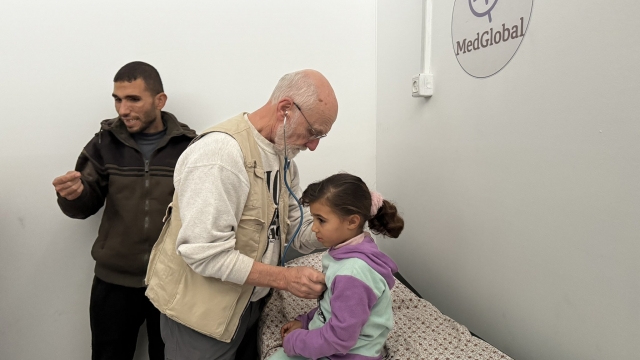Two weeks ago, Chicago area Dr. John Kahler returned from a medical trip in Rafah, in southern Gaza. But he says he left a piece of his soul behind.
"It just moved me, and it touched me at a place that hadn't been touched before," said the retired pediatrician.
According to the U.N., 1.4 million Gazans are now sheltering in Rafah, which borders Egypt, living in sprawling tent camps after escaping fighting elsewhere.
"Families of 10, families of 20 living in one tent. Talking to families where their child hadn't eaten in two days," recalled Kahler. As a humanitarian doctor, the 77-year-old has visited crisis areas around the world, but he says in Gaza "it was a level of contact with suffering that I've never had in my life."
During his two-week mission in Rafah, Kahler spent all day treating hundreds of children inside a health care center recently set up by his organization MedGlobal.
"Every one of them had a respiratory disease," Kahler said, adding that all the younger kids had diarrhea and most infants had "terrible diaper rashes because the simple things needed to take care of those weren't there."
For example, the health care center — like most of Gaza — didn't have running water. Next door to the exam room Kahler was using was a burn clinic where patients endured wound cleanings without anesthesia.
"From the second we started to the second we ended, you would hear these poor children just screaming at the top of their lungs because of the pain. That was terrible," Kahler said.
The 77-year-old says he desperately wants to go back to Rafah to keep helping and bear witness. But his return hangs in the balance as Israel hints at a potential ground invasion of the densely populated city. "The concept of a ground offensive in that area with the concentration of children is just heartbreaking, it's unimaginable," he said.
After over four months of war, Israel says Rafah is now the last Hamas stronghold. It's there that the IDF rescued two hostages on Monday and killed dozens of Gazans, according to local officials. Kahler says he could already hear bombs when he was in Rafah two weeks ago.
And though the situation appears a lot more dangerous today, the 77-year-old says that's exactly why he feels compelled to go back and do what he can to relieve the suffering. "I'll be going back as early as I can," he said.



